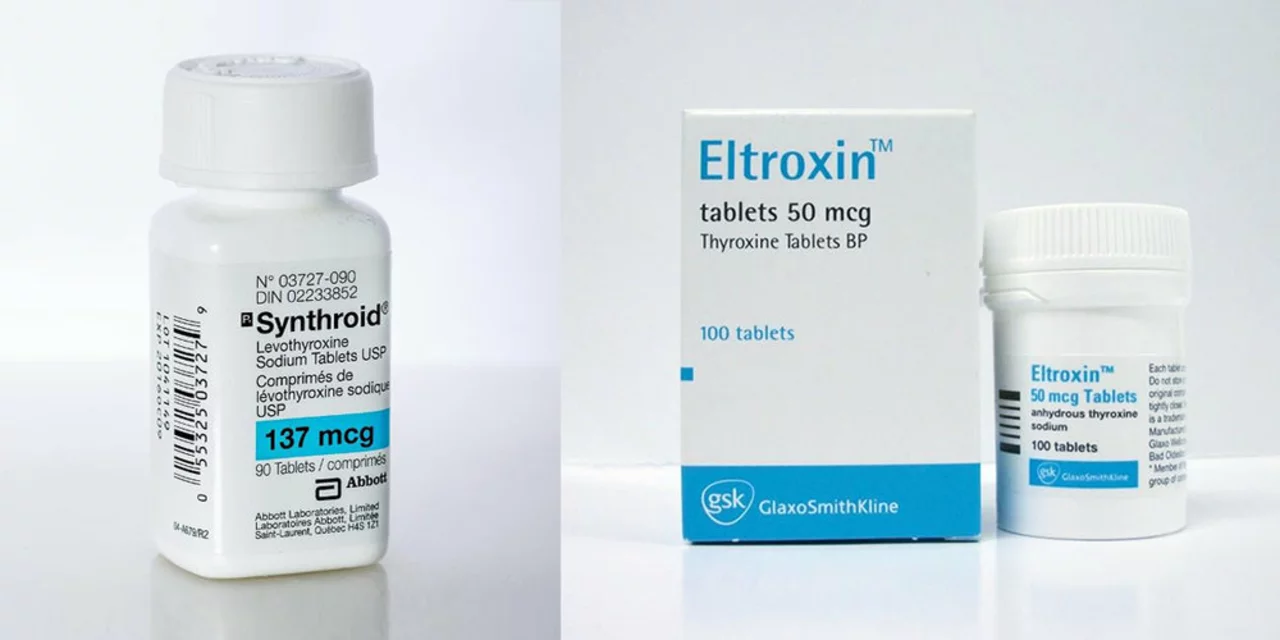Understanding Levothyroxine and Its Importance for the Elderly
Levothyroxine is a medication primarily used to treat hypothyroidism, a condition where the thyroid gland does not produce enough thyroid hormones. As we age, the risk of developing hypothyroidism increases, and it is particularly common in elderly individuals. In this section, we will explore the importance of levothyroxine for the elderly, how it works, and why it is a vital treatment option for those experiencing hypothyroidism.
Recognizing Hypothyroidism Symptoms in the Elderly
It is crucial for elderly individuals and their caregivers to recognize the symptoms of hypothyroidism, as they can often be mistaken for signs of aging or other health conditions. Symptoms of hypothyroidism in the elderly may include fatigue, weight gain, constipation, dry skin, and cold intolerance. Additionally, elderly individuals with hypothyroidism may experience cognitive decline, depression, and a slow heart rate. By understanding these symptoms, it will be easier to identify hypothyroidism and seek appropriate treatment with levothyroxine.
Starting Levothyroxine Treatment: Initial Dosage Considerations
When beginning levothyroxine treatment for hypothyroidism in the elderly, it is essential to start with a low dose and gradually increase it as needed. This is because elderly individuals often have a higher sensitivity to medication, and starting with a lower dose can help minimize the risk of side effects. Additionally, a lower starting dose allows healthcare providers to monitor the patient's response to the medication and make adjustments as necessary. It is important to work closely with a healthcare provider to determine the appropriate starting dose of levothyroxine for each individual patient.
Monitoring Treatment Progress and Adjusting Dosage
Regular monitoring of thyroid function is essential in ensuring that the levothyroxine dosage is appropriate for the individual patient. This typically involves blood tests to measure thyroid hormone levels and may also include monitoring of symptoms and overall well-being. Based on the results of these tests, the healthcare provider may adjust the levothyroxine dosage to ensure optimal treatment. It is important for elderly individuals and their caregivers to communicate any changes in symptoms or concerns with their healthcare provider throughout the treatment process.
Understanding Potential Side Effects and Interactions
Like any medication, levothyroxine can cause side effects and interact with other medications. Some potential side effects of levothyroxine include increased heart rate, tremors, insomnia, and weight loss. It is important to report any unusual or concerning side effects to the healthcare provider, as they may need to adjust the dosage or explore alternative treatment options. Additionally, levothyroxine can interact with several medications commonly used by elderly individuals, such as blood thinners and medications for heart conditions. It is crucial to discuss all medications and supplements with the healthcare provider to ensure safe and effective treatment.
Considering Age-Related Changes in Absorption and Metabolism
As we age, changes in our body's ability to absorb and metabolize medications can impact the effectiveness of levothyroxine treatment. For example, elderly individuals may have a reduced ability to absorb levothyroxine due to age-related changes in the gastrointestinal system. Additionally, decreased liver and kidney function can affect how the medication is processed and eliminated from the body. It is important to consider these factors when determining the appropriate dosage of levothyroxine for elderly patients and to monitor treatment progress closely.
Adhering to a Consistent Levothyroxine Routine
For levothyroxine treatment to be effective, it is essential to take the medication consistently and as directed by the healthcare provider. This includes taking the medication at the same time each day, preferably in the morning on an empty stomach. It is also important to avoid certain foods and supplements that can interfere with levothyroxine absorption, such as calcium and iron supplements, and high-fiber foods. By adhering to a consistent levothyroxine routine, elderly individuals can help ensure the most effective treatment for their hypothyroidism.
Addressing Common Concerns and Questions
Elderly individuals and their caregivers may have concerns or questions about levothyroxine treatment, such as how long it will take to see improvements in symptoms or whether the medication will need to be taken for the rest of their lives. It is important to discuss these concerns with the healthcare provider, as they can provide personalized information and guidance based on the individual's specific situation. Open communication with the healthcare provider is essential in ensuring a successful treatment experience.
Recognizing the Importance of Patient Education and Support
For elderly individuals and their caregivers, understanding the importance of levothyroxine treatment and how to manage hypothyroidism effectively is crucial. Patient education resources, such as informational brochures, support groups, and online communities, can help provide valuable information and encouragement throughout the treatment process. By staying informed and connected, patients and caregivers can feel more empowered in managing hypothyroidism and maintaining a high quality of life.
Conclusion: The Importance of Safe and Effective Levothyroxine Treatment for the Elderly
Levothyroxine is a vital treatment option for elderly individuals experiencing hypothyroidism, helping to restore thyroid hormone balance and improve overall well-being. By considering factors such as dosage, potential side effects, and age-related changes in absorption and metabolism, healthcare providers can work with patients and caregivers to ensure the most effective and safe treatment possible. With open communication, patient education, and a commitment to a consistent treatment routine, elderly individuals can successfully manage their hypothyroidism and enjoy a higher quality of life.






I've been on levothyroxine for 8 years now and honestly, the biggest thing is consistency. Take it on an empty stomach, wait an hour before coffee, don't mix it with calcium supplements. Simple stuff, but people overlook it. My TSH was all over the place until I got disciplined.
My dad started this med last year and he's like a new man 😊 Used to be tired all the time, now he's gardening again and even joined a chess club. Low dose at first, slow ramp-up - doc knew what they were doing. Elderly bodies ain't the same as ours!
I work in geriatric pharmacy and let me tell you, the absorption issues are real. Elderly patients often have reduced gastric acid, which means levothyroxine doesn't dissolve properly. That's why we push for morning dosing on an empty stomach - and even then, some folks need to switch to liquid formulations. Also, kidney and liver clearance slows down, so even if the dose looks right on paper, the half-life is longer. We've seen people on 50mcg for years, then get a new lab and suddenly they're hyperthyroid because their metabolism changed. It's not just 'take pill, feel better.' It's a living, breathing adjustment process.
I’ve seen too many elderly patients get over-treated. TSH under 1? That’s not optimal - that’s iatrogenic hyperthyroidism waiting to happen. Bone density drops, atrial fibrillation risk goes up. Start at 25 mcg. Wait 6-8 weeks. Recheck. Don’t rush. The goal isn’t to get TSH into the 'normal' range - it’s to get the patient feeling normal.
Oh great, another 12-page pamphlet on how to take a pill. Next up: 'The Art of Breathing: A Guide for Seniors Who Forgot How to Inhale.' Honestly, if you can’t remember to take a pill at the same time every day, maybe you shouldn’t be managing your own meds. Let’s just put you in a nursing home with a nurse who can read.
The notion that 'low and slow' is universally applicable is an oversimplification. While caution is warranted, some elderly patients with longstanding, severe hypothyroidism and cardiac compromise require more aggressive titration under cardiac monitoring. The fear of iatrogenic hyperthyroidism has led to undertreatment in a population already at risk for frailty and cognitive decline. Evidence-based medicine must balance risk with quality of life - not just TSH numbers.
my aunt took it and forgot to tell doc she was taking iron pills every day. her tsh stayed high for months. then she found out the hard way. dont mix supplements with thyroxine. its a lesson.
We are all just temporary vessels of hormonal flux, aren't we? Levothyroxine doesn't 'treat' hypothyroidism - it merely mimics the ghost of a gland that has surrendered to entropy. We take this synthetic hormone not to live better, but to delay the inevitable unraveling of biological systems. The real question isn't dosage - it's whether we're clinging to life because we're afraid, or because we still believe meaning exists in the rhythm of a heartbeat, a breath, a TSH level. And if we're honest - we're just trying to outrun the silence.